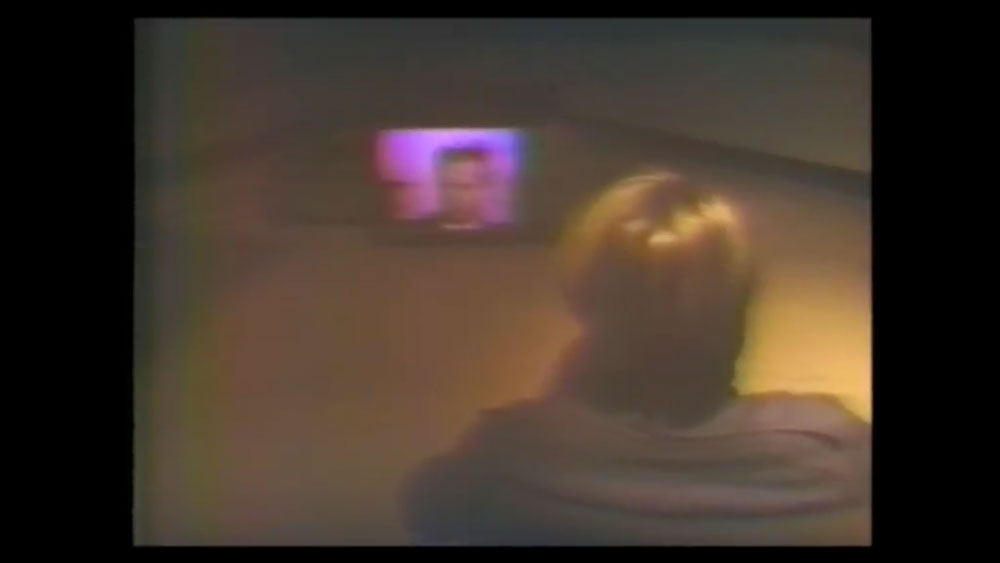Contemporary Revisions
— Montse Badia / A-DESK about LOOP 2017

This article has been written as part of the collaboration between A*DESK and LOOP Barcelona 2017

This year Loop is fifteen years old and brings with it a gift, under the guidance of two classics of the genre, Eugeni Bonet and Antoni Mercader (spoiler alert: next week we’re interviewing them at A*DESK). One that delves into the history of the pioneers of video and brings to light documents and works that are essential to recuperate, digitalise, make accessible and showcase our theoretical and artistic patrimony.
Albert Alcoz has curated for Arts Santa Mònica an exhibition that is like an iceberg because it shows only part (a selection of historic pieces by pioneering artists) of a very important collection of documents and catalogues (specifically 35 items to document the irruption of video art in Spain 1974-1990 with the good news that is available online) , one that contributes to regenerate a triple confluence: a specific historical and political moment + certain artistic attitudes + media that make the generation of new languages possible.
This is a cocktail that it is important doesn’t fall into oblivion so that our artistic and cultural scene can have some references with which to dialogue so as not to become a scenario defined by uniform mainstream references.
(Re)visionats (re)visitats reminds us that in the mid 70s, Spain lived a complex political situation with a dictatorship living its last breaths but still very much present (and, this wasn’t known then but is now, leaving everything “done and dusted” for later decades). In this context, a series of artists expand the stereotype of belonging to specific social class, incorporating into their works political and feminist perspectives; critically analysing the strategies of the new media of the moment, film and television; calling for critical perception of the spectators and exploring the new possibilities of video as a creative tool.
There could be more of them, but they couldn’t be others. Albert Alcoz selects three irreplaceable names in this video genealogy: Eugènia Balcells, Antoni Muntadas and Carles Pujol, that what’s more will have a series of monographic debates (Muntadas on the 5 May, Carles Pujol the 24 May and Eugènia Balcells, the 26 May) that will propose debates around their works with the participation of artists and filmakers from younger generations whose work shares a lot of things with these pioners.
Going Through Languages (1981), Re-prise (1977) and Boy Meets Girl (1978) are the three works by Eugènia Balcells, that explore the image of the woman-object generated by the media and the typologies and archetypes of commercial cinema. The early works by Muntadas explore the senses through new technologies, Accions (1971); alternative channels of communication, free of hierarchies avant-la-lettre, Cadaqués Canal Local (1974); a personal perception of the media On Subjectivity (About TV) (1978), Watching the Press/Reading Television (1981) or the need to invert modes of reading to discover strategies and Media Ecology Ads (1982), or how to sanitize publicity, revealing its codes and strategies.
One of the exhibition’s great contributions is the re-vision of works by Carles Pujol, perhaps because up until now they have been revisited less than the other two. Meninas (1986) explores in terms of form and meaning the complexity of the Meninas. And in Transformacions (1975), Homenatge a Erik Satie (1976), 3 temps (1979) and 81 x 65 (1980) he plays-experiments-reflects with different elements on painting, drawing, music, geometry, time and space.
A complex political situation, are we talking about the 70s-80s-90s, or in reality are we talking about now? In Spain, Europe and across the world. A need to incorporate discourses that aren’t hegemonic? It’s still urgent . Is there a need to analyse critically the strategies of technology? Not just of film and television, but also the Internet, Big Data, large corporations, etc. What about the critical perception of spectators? It’s more necessary than ever, so as not to become a society of zombies abducted by the screens of our mobile devices.